People
| Director, Principal Investigator |
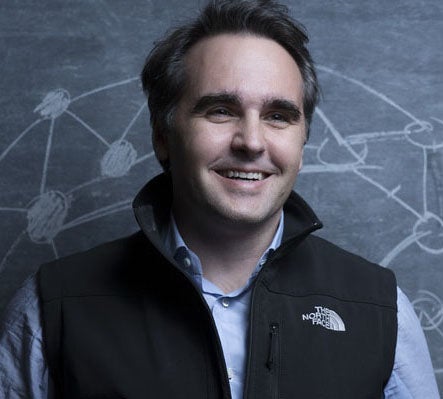 Damon Centola Damon Centola
Damon Centola is the Elihu Katz Professor of Communication, Sociology and Engineering at the University of Pennsylvania, where he is Director of the Network Dynamics Group and Senior Fellow at the Leonard Davis Institute of Health Economics. Before coming to UPenn, he was an Assistant Professor of Behavioral and Policy Sciences at MIT, a Robert Wood Johnson Scholar in Health Policy at Harvard University, and received his Ph.D. in sociology from Cornell University in 2006. Damon’s research centers on social networks and behavior change and includes social epidemiology, the diffusion of innovations and cultural norms, and the mobilization of social movements. In his research, he uses Web-based social experiments to study how patterns of affiliation and interaction can promote, or inhibit, the emergence of new forms of collective behavior. |
|
Developers |
||
| Chief Software Architect |
 Alan Wagner Alan Wagner
Alan Wagner, Chief Software Architect, has been designing and building experiments with Damon Centola since 2007. His multi-disciplinary background combines professional experience in web development with training in academic research, leading to his current position as founder of Farther Horizon s.a.r.l. in Paris, France. A sinologist by education, Dr. Wagner received his ‘博士’ (Ph.D.) degree in the Study of Religion from Harvard University in 2008, specializing in medieval Chinese Buddhism. During his time as a student he won a Webby Award for his work with the Pluralism Project at Harvard, and built a web application for constructing and exploring family trees that was recognized with an Award for Achievement in Instructional Technology. After completing his studies he spent four years as a software engineer and project manager at Smile Open Source Solutions in Paris, where he helped clients including Volkswagen, Bayard Presse, The North Face, and Educational Testing Service, before starting his own company in 2013. |
|
| Designer |  Theodore Groves, AIGA Theodore Groves, AIGA
Theodore Groves is one of the two founders and Principals at Myriad. Prior to co-founding Myriad, Theodore held the position of Director of Design at The Computer Museum in Boston. Ted’s work has won many awards and has been widely published; “Your Disease Risk”, a project on which he worked in partnership with the Harvard School of Public Health Center for Cancer Prevention was featured in US News and World Report, and in the Wall Street Journal, saying it “stands out as one of the best health-oriented sites on the web.” Among the other publications that have featured Ted’s work are Print Magazine, The Boston Globe, and P.I.E. Books (Japan). He is also on the Patient/Family Advisory Council at Massachusetts General Hospital and teaches at the Boston University School of Communication in the Center for Digital Imaging Arts. |
|
| Web Developer |
 Ryan Overbey Ryan Overbey
Ryan Overbey has been developing websites and applications for academic research projects since 2006. Since joining the Network Dynamics Group, Dr. Overbey has contributed frontend and backend code to the PENNVest, Name Game, and PennSHAPE projects. A specialist in medieval Chinese Buddhism, he received his Ph.D. from Harvard’s Committee on the Study of Religion in 2010. He is currently a Visiting Assistant Professor of Religion at Wesleyan University. |
|
Students |
||
| Assistant Professor |
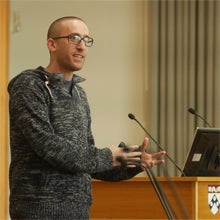 Joshua Becker Joshua Becker
Joshua combines computational modeling and experimental design to explore basic principles of social behavior, identifying how collective intelligence is impacted by the structure of communication networks. His research on coordination in complex networks examines how groups choose between mutually exclusive alternatives, as in the selection of technology standards and the emergence of social conventions. A primary goal of this work is to understand how central individuals influence collective decision making and problem solving. Joshua is currently working on several projects with the Network Dynamics group that study such topics as information aggregation, collective decisions, the stability of social conventions, and the emergence of inequality. |
|
| Senior Data Scientist |
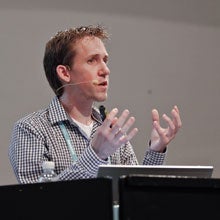 Devon Brackbill Devon Brackbill
My research examines the dynamics of collective intelligence, group problem solving, and norm emergence by networked individuals. My work relies upon online network experiments to identify the complex interplay of social forces that produce collective political, health, and social outcomes. My dissertation, which is supported by the NSF, examines how network structure affects the ability of groups to solve complex problems. Paradoxically, more efficient communication networks actually hinder the performance of groups, and less efficient networks that allow for greater exploration are more successful at solving complex problems. This research uses agent-based models, online experiments with human subjects, and observational data. |
|
| Postdoctoral Fellow |
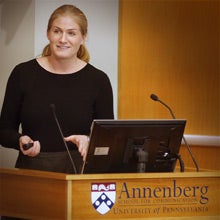 Natalie Herbert Natalie Herbert
Natalie’s research is interested in the dynamics of coordination, norm development, and information diffusion. This research relies on game theory, agent-based modeling, and online experiments with human subjects. Current projects include a modeling and empirical exploration of games that divide resources and touch on the emergence of classes and status. Natalie received her B.A. in Political Science with a focus on game theory and statistical modeling from UCLA. |
|
| Assistant Professor |
 Sijia Yang Sijia Yang
Sijia studies antecedents to, processes and consequences of interpersonal interactions and influences on the Internet with regards to both political and health-related issues. He is especially interested in how structural properties of various forms of networks on the web (e.g. friendship network, message posting and re-posting network, semantic network of ideas, etc.), together with message features of user-generated content, affect social diffusion of certain types of information (e.g. political rumors and health-related mis-information), public opinion/attitude formation, and individual behavioral changes. Currently, in the Network Dynamics Group, Sijia is conducting a study aimed to examine combinations of message features and network structural properties that are promising to initiate, sustain and propagate pro-health behaviors at a large scale. In addition, he is also working on a project aimed to design a recommendation system for anti-smoking PSAs using methods from machine learning and network analysis. |
|
| Assistant Professor |
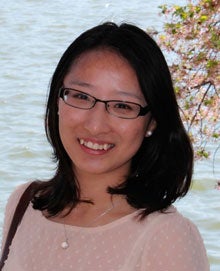 Jingwen Zhang Jingwen Zhang
My research focuses on health communication, social media, online social networks, and ICT4D in developing countries. In the lab, I work on online social network experiments that test the influence of different health message features and social network structures on people’s reception to the message content and subsequent behavioral changes. Within the health domain, my research interests are in youth sexual health education and HIV/AIDS prevention utilizing innovative online communication platforms. I received my B.A. in Journalism from Zhejiang University and two M.A. degrees in Communication from Clemson University and the University of Pennsylvania. Before joining the lab, I interned at the Berkman Center for Internet and Society and the UNICEF C4D section. |
|
| Assistant Professor |
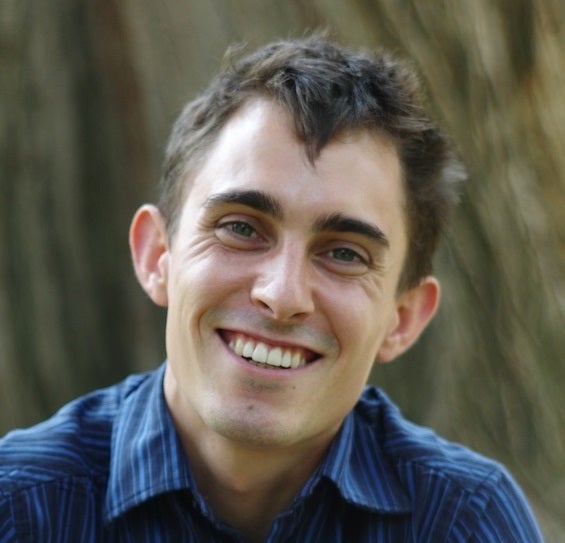 Doug Guilbeault Doug Guilbeault
Doug is an Assistant Professor in the Management of Organizations Group at the Haas School of Business. His work centers around the study of how people form conceptual systems through communication processes that are mediated by social networks and organizations. His work has appeared in a number of journals, including The Proceedings of the National Academy of the Sciences, Cognition, Policy and Internet, and The Journal of International Affairs, as well as in popular news outlets, such as The Atlantic and Wired. Doug’s work has received top research awards from The International Conference on Computational Social Science, The Cognitive Science Society, and The International Communication Association. His current research is funded by Facebook and the NIH. |
|
| Postdoctoral Fellow |
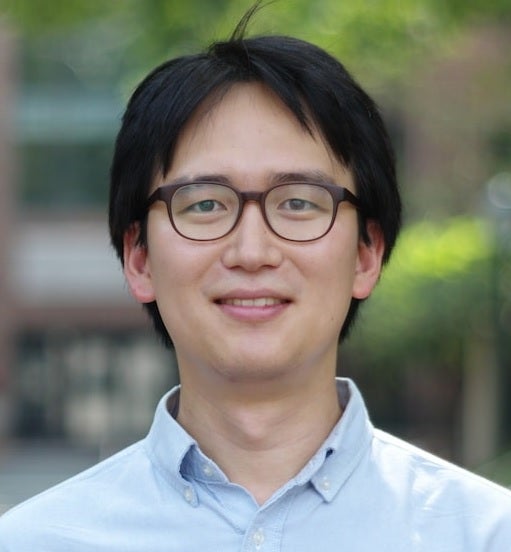 Soojong Kim Soojong Kim
Soojong’s research focuses on social dynamics in networks. He is investigating how information, behavior, and convention emerge, evolve, and diffuse in social networks. His studies are based on computational methods, such as computational modeling and online experiment. He studied computer science and mobile communications at Seoul National University and worked at Samsung Electronics for several years. He also earned a Master’s degree in sociology at Seoul National University. |
|
Collaborators |
||
| Assistant Professor of Mathematics, City University London |
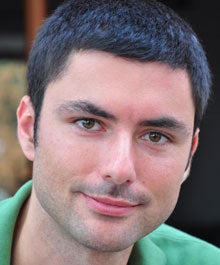 Andrea Baronchelli Andrea Baronchelli
Andrea Baronchelli is Assistant Professor at City University London. His interests are in complex systems and networks, human behavior, and data science. His work focuses on the analysis and modeling of social, biological and cognitive systems. Together with Damon Centola he is looking at the collective dynamics leading to the emergence of consensus (on an opinion, convention, etc) in a population of individuals. Other research lines include diffusion and spreading phenomena in complex networks, collective dynamics in Twitter, and user (ir)rationality in economic arenas. |
|
| Assistant Professor of Medicine in Residence, UCSF |
 Dr. Urmimala Sarkar MD, MPH Dr. Urmimala Sarkar MD, MPH
Urmimala Sarkar MD, MPH is an Assistant Professor of Medicine in Residence at UCSF in the Division of General Internal Medicine and a primary care physician at San Francisco General Hospital’s General Medicine Clinic. Dr. Sarkar’s research focuses on (1) patient safety in outpatient settings, including adverse drug events, missed and delayed diagnosis, and failures of treatment monitoring, (2) health information technology and social media to improve the safety and quality of outpatient care, and (3) implementation of evidence-based innovations in real-world, safety-net care settings. Dr. Sarkar has conducted studies which explore the impact of health communication (health literacy, English proficiency) and health information technology on patient safety. Her prior studies on internet-based patient portals demonstrate digital disparities by race/ethnicity and health literacy. Her social media studies use mixed-methods approaches to understand patient perspectives about physician quality and about cancer screening behaviors. Her ongoing work employs varied health information technologies to detect and ameliorate adverse events among outpatient chronic disease populations. She is currently funded by the Agency for Health Care Research and Quality, the California Healthcare Foundation, and the Gordon and Betty Moore Foundation. In addition to her research, Dr. Sarkar applies her patient safety expertise in her role as the Quality and Safety Liaison for the General Medicine Clinic at San Francisco General Hospital, for which her quality-related activities include outpatient case reviews, provider credentialing, and participation in the Medication Error Reduction Plan and Ambulatory Care Committees. Dr. Sarkar serves as the co-director for the San Francisco General Hospital Primary Care Residency’s Quality Improvement, Patient Safety, and Leadership Curriculum with Dr. Claire Horton, and mentors trainees in both research and quality improvement projects. Dr. Sarkar also serves as co-director for the School of Medicine’s Office of Student Research and Research Allocation Program-trainees, with Dr. Daniel Lowenstein. |
|
| Assistant Professor of Medicine and Pediatrics, Perelman School of Medicine |
 Dr. Jaya Aysola MD, MPH Dr. Jaya Aysola MD, MPH
Jaya Aysola is an Assistant Professor of Medicine and Pediatrics at the Perelman School of Medicine, with her primary appointment in the Division of General Internal Medicine. Her research focuses on policy related solutions for improving uptake and quality of primary and preventive care for vulnerable populations and stems from her clinical, administrative, and policy experiences in resource‐poor settings. She joined faculty at Penn, after completed a two‐year general internal medicine research fellowship at the Department of Health Care Policy, Harvard Medical School. Prior to her research fellowship, she obtained a Master of Public Health in Health Care Policy and Management, at the Harvard T. H. Chan School of Public Health, through the Commonwealth Fund‐Harvard University Minority Health Policy Fellowship. Her research interests center on how care delivery models can effectively incorporate a patient’s social context – starting with their social networks and subsequently expanding to the dynamics of the broader social community – to improve equity in care. Examples of her research include evaluating social and system factors related to the uptake and quality of patient‐centered medical homes, published in Health Affairs, Medical Care, and JGIM. Prior to her time in Boston, Dr. Aysola developed and ran safety net clinics in the wake of Hurricane Katrina. She was the Medical Director of the New Orleans Children’s Health Project and Section Chief of Community Pediatrics and Global Health at Tulane University School of Medicine. In addition, Dr. Aysola, a diplomate from the London School of Tropical Medicine and Hygiene, has extensive work experience in resource poor settings in Cambodia, Thailand, and India. She received a Bachelors of Science from University of Michigan, with high distinction in Anthropology and Zoology and her MD from the University of Pittsburgh School of Medicine.td> |
|
| Associate Professor of Sociology, SUNY Stony Brook |
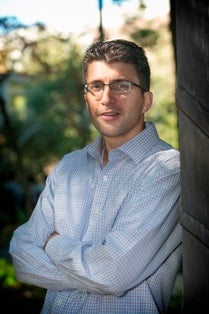 Arnout van de Rijt Arnout van de Rijt
My work on social networks seeks to understand global network structures as emerging from many individuals making local decisions on whom to interact with and whom to avoid. For my contributions to social network analysis I received the 2010 Freeman Award for Distinguished Junior Scholarship and several best article awards. My work on cumulative advantage investigates how success-breeds-success dynamics produce arbitrary inequities between equally talented persons and is supported by the National Science Foundation through award #1340122. My research has been published in American Sociological Review and American Journal of Sociology. |
|
